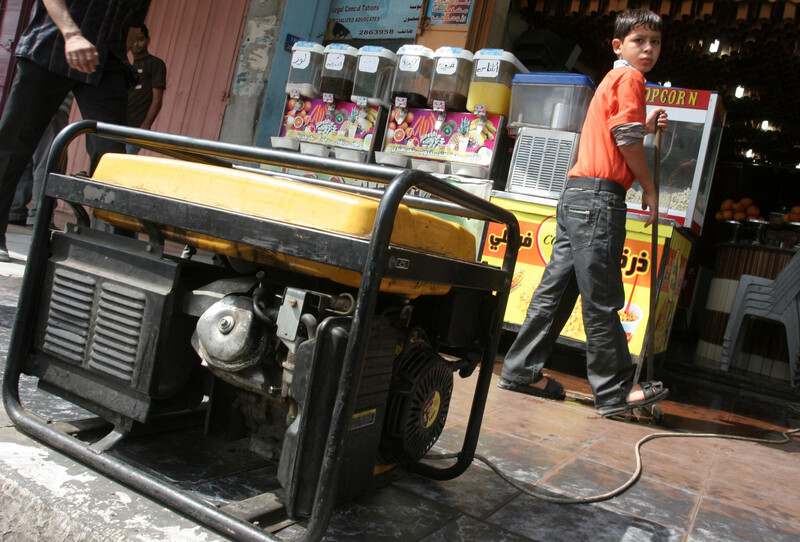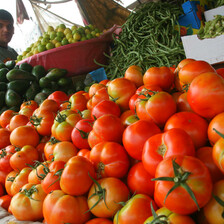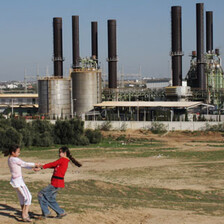The Electronic Intifada Gaza Strip 7 May 2012

Generators have become ubiquitous in Gaza because of the fuel crisis.
APA imagesInam Abu Nada is lucky. Back in 2010, she and her 20-year-old daughter narrowly escaped death due to fumes from a power generator. Like thousands of other Gaza families, they had to were forced to use a generator by chronic power shortages that mean most of Gaza’s residents get only about eight hours of electricity each day.
Gasoline generators give off carbon monoxide, a colorless, odorless gas that is lethal, and therefore generators must never be used inside the home or in an enclosed area.
Abu Nada was hospitalized for a day, and her daughter lost consciousness, but recovered because they were found in time by a family member.
But since the beginning of this year 10 persons have died due to various accidents with generators in the territory, according to local authorities. Approximately 27 others have been injured.
Abu Nada took her narrow escape as an opportunity. After the accident, she told The Electronic Intifada, “I began thinking about enlightening the local community about dangers of gasoline-powered generators.”
On a recent Sunday, a group of women and men sat listening as Abu Nada, a long-time activist who works for the organization Oxfam, gave a workshop on generators at Ru’ya (Vision), a local organization in the Gaza City neighborhood of Asqula. Abu Nada explained some of the ways to avoid the common dangers of generators.
“This is an excellent workshop,” one man, Fadil al-Ghussein, told The Electronic Intifada after the session. “I have eight children and of course I am concerned about them, that’s why I am here today.”
Pressing
“The power outage problem has been extremely pressing on us and I do think that such education is important for households in Gaza,” said Yusra Dalloul, a mother of six. “Unfortunately, a neighboring family recently lost two of its sons because of a power generator accident.”
Among the things Dalloul said she had learned was how to operate the generator safely, keeping it away from sources of fire, and to make sure that extra fuel is stored far away from the generator.
The session attended by al-Ghussein and Dalloul is the third of eight that Abu Nada will give at Ru’ya as part of an awareness campaign supported by Oxfam. Oxfam, according to its website, is a confederation that works in 90 countries, “with partners and allies around the world to find lasting solutions to poverty and injustice.”
Karl Schembri, a spokesperson for Oxfam in Gaza, told The Electronic Intifada that the program had been in place across the Gaza Strip since 2010 and it included working with local organizations to distribute tens of thousands of leaflets and posters with information about the safe use of generators.
Schembri said that his colleague Inam Abu Nada’s accident spurred Oxfam to actually start training Gaza’s households on the use of power generators.
“Through our partner local organizations in Gaza we have been able to disseminate our message far and wide and right now we have regular workshops on the issue in various Gaza neighborhoods, especially in Gaza City and in the northern Gaza Strip,” Schembri said at his Gaza City office.
Asked how people respond to her efforts, Abu Nada was positive, saying that women seemed to be especially interested. “In every lecture I give, I find participants interactive and interested. I have at least 20 women and men participants out of the 25 places designated by Oxfam for each workshop.”
“I do not want my children to die the way our neighbor’s brothers recently passed away, that’s why I am here listening to Inam,” said Soraya Dalloul, another participant, underscoring that sometimes basic knowledge about a common appliance can be a matter of life and death.
Rami Almeghari is a journalist and university lecturer based in the Gaza Strip.





